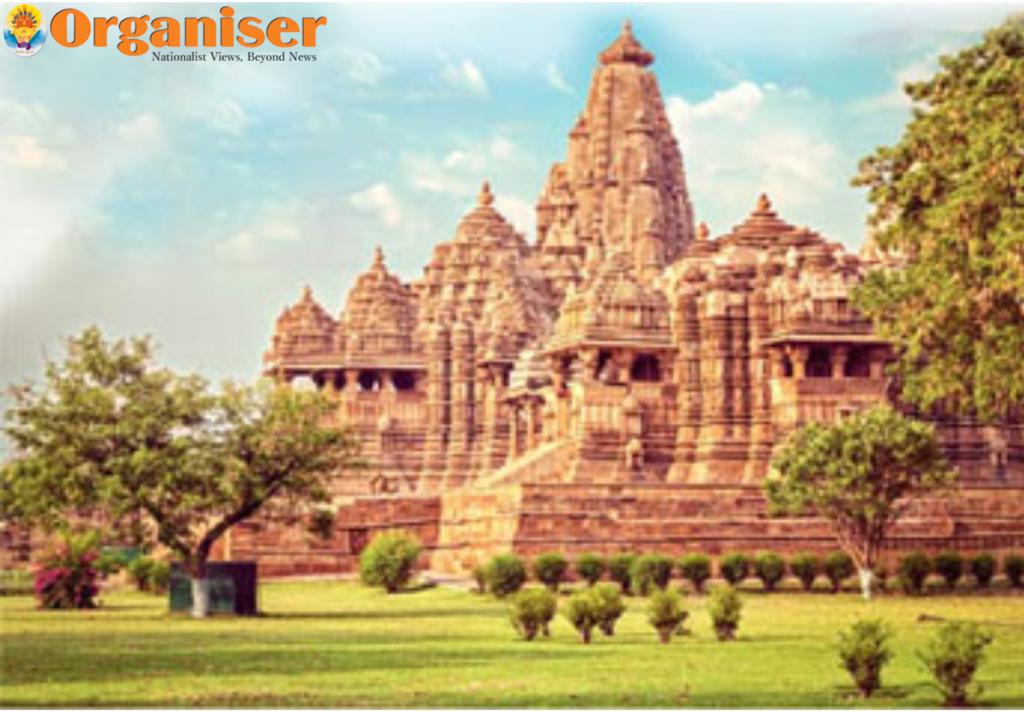Truth alone can bring lasting peace and restoring temples is a step in the same direction
A huge collection of works by Indian and western scholars shines the light on how past invaders altered our basics by using the caste and class differences of the Indian society for their own vested interests and plundered the country and its many temples.

Alterations and changes can be a good thing. As human civilization evolved, many aspects of the socio-economic landscape changed. We adopted permanent settlements and developed big metropolitan cities. A change in the form of governance — from absolute monarchy to constitutional democracy — was a critical part of this. We also adopted fiat currencies issued and controlled by central banks. Education and employment have become more organized. These were all, indeed, good things.
But not every change can be termed good. In the quest for rapid growth, nations raced against each other to discover and produce more and more fossil fuels, including coal. Similarly, altering the basics — for example, sweeping urbanization leading to villages and small towns becoming neglected, underdeveloped parts — was not good.
Unfair alterations in India
A huge collection of works — both by Indian and western scholars — shines the light on how past invaders altered our basics. These invaders used the caste and class differences of the Indian society, for their own vested interests, and plundered the country and its many temples. A simple search on Google can take one to Wikipedia — a not-for-profit online encyclopedia owned and controlled by a foreign entity — that has multiple pages on how Mughal invaders looted the country of its rich heritage. In an attempt to convert some oblivious Hindus, these rulers demolished their temples and erected mosques.
This was a change that cannot be termed a good thing. Besides, there is a difference between restoration and majoritarianism. The latter is a term used by a news media section against the Hindu majority and anyone who speaks about their justifiable and oft-ignored rights. If there is a call to correct past mistakes, this section, backed by political parties with vested interests, decries the appeasement of the majority faith.
Restoration is a good thing
Is correcting the injustice perpetrated over many centuries majoritarianism? No. Instead, it is a restoration drive that must be supported by every true citizen of India, cutting across all faiths. And there is a very strong argument in this favour.
Can you build a resilient structure over lies? You simply cannot. It is truth alone that can bring lasting peace to any society. Unearthing truth is no appeasement, no majoritarianism. It is simply an exercise that any government shall undertake in any country. In the US, there is a growing consensus on putting an end to gun violence. By having allowed anyone to walk into a shopping mall and purchase a gun, the country did a no good thing in the past. Restoration is what they need.
Similarly, India needs to enquire and restore. Alterations in the past, which were against natural law, have to be restored to what is lawful. This exercise not only includes our increased reliance on swadeshi goods but also on finding the truth about our places of worship. A place of worship is as basic to any faith as is a mother to a newborn.
Finding the truth about places of worship
The country’s elected government must take urgent steps in the right direction. Enquiring is no bad thing, and hence we must enquire what lies beneath those mosques that were supposedly constructed not to add to places of worship but only to inflict pain on Hinduism and its followers. And if this enquiry requires the judiciary’s support, it must come without any petition in this regard. Our courts have the power to suo motu take cognizance of subject matters that are of critical importance. Indeed, all this is not possible without the co-operation of non-majority faiths of India, which shall be sought.
Alterations and changes are not always a good thing. And there is something called restoration. If past invaders altered the original nature of places of worship in India, it was unlawful and inhuman. Restoring the real identity of these places cannot be termed supremacy of the majority faith or appeasement. Similar to how we should not have upset the ecological balance to bring quick but unsustainable development, we should not have allowed unjust alterations to survive after we attained self-rule in 1947.
It is time to restore truth — which has become overdue — for truth only can bring lasting peace.
(The article “Truth alone can bring lasting peace and restoring temples is a step in the same direction” published in ‘Organiser’)